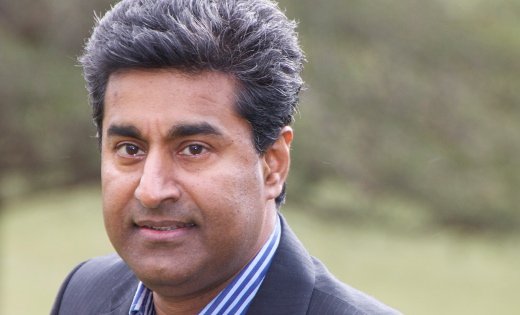Dr. Raj Mattu
2016 BLUEPRINT UK WHISTLEBLOWING PRIZE
Dr. Raj Mattu is the recipient of the 2016 Blueprint UK Whistleblowing Prize.
Cardiologist and former employee of the Warwickshire NHS Trust, Dr. Mattu was dismissed by the trust in 2010 following a 9-year campaign of professional vilification.
In 2001, Dr Mattu blew the whistle on the University Hospital Coventry and the Warwickshire NHS Trust (UHCW) regarding concerns he had with patient safety. He was concerned about the overcrowding of wards. Dr Mattu said at least two otherwise preventable patient deaths occurred due to overcrowded wards.
Whilst helping improve patient care and safety, Dr Mattu was forced to identify shortcomings in clinical care and dangers to patient safety at UHCW NHS Trust. He suffered reprisals from management after raising concerns. After the Trust denounced what remains the worst clinical governance review ever produced by the regulator CHI (predecessor of the current Care Quality Commission), with findings of 60% excess mortality and victimisation of staff who raised concerns, Dr Mattu bravely whistleblew on BBC TV about deaths related to the management policy of overcrowding patient bays.
Following his disclosure, Dr Mattu was suspended for five and a half years, during which time — and even after his eventual dismissal in 2010 — the NHS Trust has attempted to discredit Dr Mattu, bringing an estimated 200 unfounded accusations against him. The GMC rejected the allegations and closed his file. The Tribunal found the reasons cited for Dr Mattu’s dismissal to be baseless and “concluded that in all the circumstances of this case, dismissal was not within the band of reasonable responses”. It also underlined that despite his being “blameless” and “the claimant’s conduct did not cause or contribute to his dismissal”, Dr Mattu had suffered detriments on more than 25 occasions. It is now widely acknowledged Dr Mattu’s dismissal was “inextricably linked” to his 2001 whistleblowing.
In February 2016, Dr Mattu successfully won his case against the NHS and was awarded £1.2 million. More than this will have been spent in legal costs defending himself over 15 years. His case is an excellent example of the NHS’s willingness to persecute whistleblowers. Although the exact figure is unconfirmed, conservative estimates put the legal spending of the NHS on this case at more than £10 million.
Dr Mattu explained his ordeal:
Emotionally it has been very draining. I have mixed emotions over the judgment: I am relieved that I have won the case, I am also pleased that my detriments have been recognised by the employment tribunal.
But the saddest thing out of all of this for me is that the people who have lost out the most are the patients and the public because for 13 years the trust management have prevented me from looking after patients. They have also, in the way they have treated me, discouraged any further whistleblowers in the NHS from coming forward and risking having their career and livelihood destroyed.
Whistleblowing in the NHS has faced greater scrutiny in recent years. Dr Mattu’s case is particularly egregious and demonstrates the ferocity of the NHS in attempts to prevent public interest disclosures being made against them. This case culminated in the Francis Inquiry that condemned the “shocking” mistreatment of whistleblowers within the system. This case sent a strong message that the NHS needs to focus on the delivery of patient care, listen to its senior staff — including those like Dr Mattu — and cease wasting public money on what could easily be described as ‘saving face’ by senior executives.
It also illustrates another dimension to whistleblowing – not just financial fraud or illegality, but public safety.

